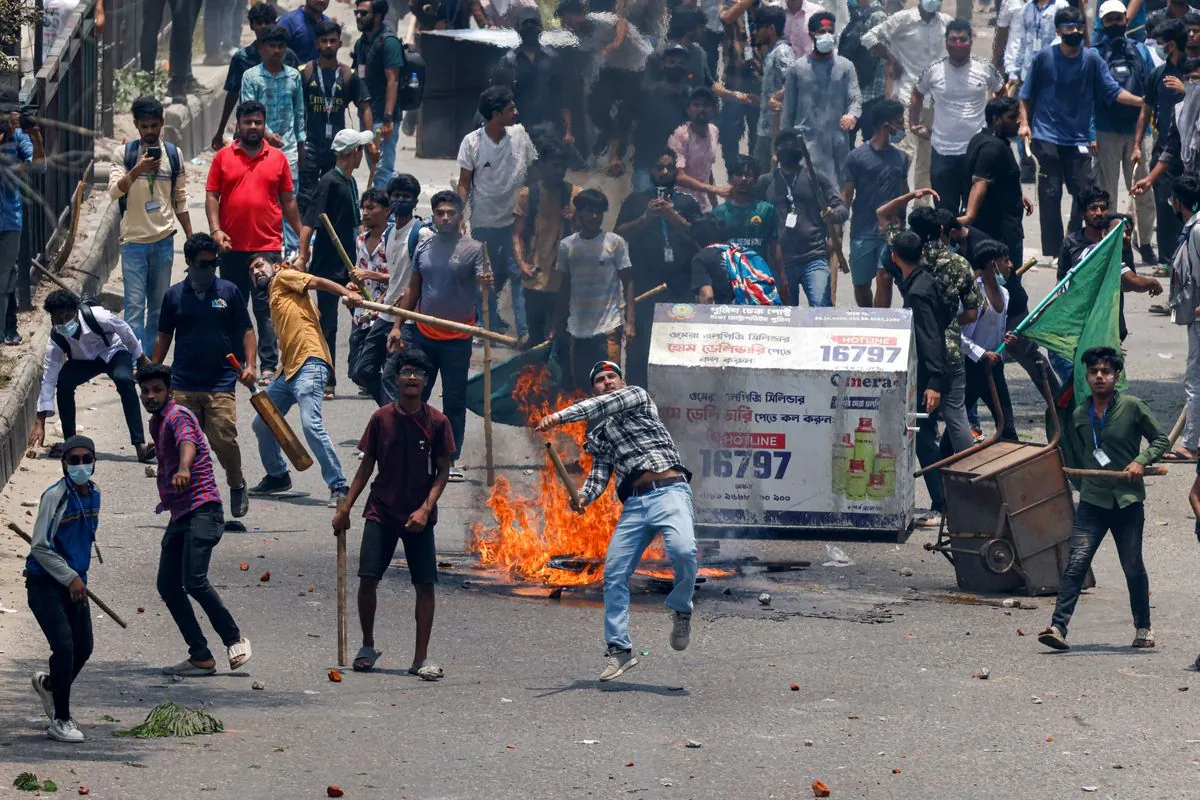Bangladesh Uprising: From Student Protests to National Crisis
Student protests in Bangladesh escalate into nationwide uprising against PM Sheikh Hasina's 15-year rule. Economic woes, corruption allegations, and human rights concerns fuel unrest as government responds with force.

In Bangladesh, what began as student demonstrations against job quotas has rapidly evolved into a nationwide uprising challenging Prime Minister Sheikh Hasina's 15-year tenure. The unrest, which has claimed at least 174 lives according to official reports, has prompted the government to implement a curfew, impose an internet blackout, and declare a public holiday in an attempt to maintain order.
The protests originated from the reinstatement of a controversial quota system for government jobs, favoring descendants of liberation war veterans. This system, established over five decades ago by Sheikh Mujibur Rahman, Hasina's father, has long been a source of contention. Despite Bangladesh's impressive economic growth, with an average GDP increase of 6.6% over the past decade, the country grapples with high youth unemployment and inflation rates.
The current crisis has deep roots in Bangladesh's complex history. The nation gained independence from Pakistan in 1971 after a nine-month war, establishing Bengali as its official language following the Language Movement of 1952. Since then, Bangladesh has experienced several political upheavals, including military coups and periods of authoritarian rule.
Hasina's government faces accusations of corruption, election rigging, and human rights abuses. The implementation of the Digital Security Act in 2018 has raised concerns about digital censorship and freedom of expression. Reports of disappearances and violent incidents against dissident bloggers have further fueled public discontent.
"We must recognize this is not an elected government in the traditional sense. They have amassed a lot of power."
Despite these challenges, Bangladesh has made significant strides in various areas. It has become the world's second-largest exporter of ready-made garments and is recognized for its contributions to UN peacekeeping missions. The country has also played a crucial role in climate change mitigation efforts and has seen improvements in poverty reduction and health indicators.
The ongoing protests have united diverse segments of society under a nonpartisan banner. As the situation unfolds, the international community watches closely, with concerns about the potential for further escalation and the long-term implications for Bangladesh's political landscape.
The future of Bangladesh remains uncertain, but the current crisis underscores the need for addressing long-standing issues of governance, economic disparity, and human rights. As the nation approaches its 53rd year of independence, the aspirations of its predominantly young population for a more inclusive and democratic society are coming to the forefront.


































